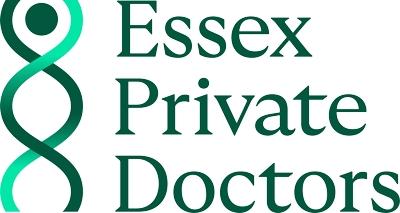Attention Deficit Hyperactivity Disorder (ADHD) isn’t just a childhood condition. For many people, ADHD continues into adulthood, affecting focus, organisation, relationships, and day-to-day life. In fact, it’s estimated that around 2.5% of adults worldwide are living with ADHD, often undiagnosed.
What Is ADHD?
ADHD is a neurodevelopmental condition that affects how the brain regulates attention, behaviour, and emotions. It’s not about laziness or lack of intelligence – it’s about how the brain is wired. Adults with ADHD often describe feeling scattered, impulsive, or restless, even when they’re trying their best to concentrate.
Common Symptoms of ADHD in Adults
The signs of ADHD in adults can vary from person to person, but they usually fall into two main types: inattentive and hyperactive-impulsive symptoms. Some adults experience both.
Inattentive symptoms may include:
-
Difficulty focusing or finishing tasks
-
Frequently misplacing items such as keys or phones
-
Forgetfulness or poor short-term memory
-
Trouble organising work or managing time
-
Feeling easily distracted by noise or thoughts
Hyperactive-impulsive symptoms may include:
-
Restlessness or difficulty relaxing
-
Interrupting others or speaking over people
-
Acting without thinking through consequences
-
Struggling to wait in queues or sit through meetings
-
A constant sense of being “on the go”
Many adults with ADHD also experience anxiety, depression, or low self-esteem, often as a result of living with undiagnosed symptoms for years.
How ADHD Is Diagnosed in Adults
A proper ADHD assessment involves much more than a quick questionnaire. A qualified psychiatrist or clinical psychologist will usually:
-
Take a detailed medical and developmental history
-
Explore current symptoms and how they impact your daily life
-
Use structured diagnostic tools such as the DIVA-5 or ASRS questionnaire
-
Consider other possible explanations for your symptoms, such as stress, trauma, or sleep disorders
If ADHD is diagnosed, your clinician will discuss a tailored treatment plan that suits your needs.
Treatment Options for ADHD in Adults
Treatment for ADHD can make a significant difference to focus, motivation, and emotional wellbeing. The most effective approach is often a combination of medication and behavioural strategies.
Medication can help balance brain chemicals (dopamine and noradrenaline) that regulate attention and impulse control. Common options include methylphenidate and lisdexamfetamine, prescribed under specialist supervision.
Therapeutic support such as cognitive behavioural therapy (CBT), coaching, and lifestyle planning can also help you manage symptoms. Many adults benefit from learning tools to improve organisation, manage time effectively, and reduce stress.
Living with ADHD
Understanding your ADHD is often the first step to managing it effectively. With the right support, adults with ADHD can thrive both professionally and personally. Whether it’s creating routines, using digital reminders, or setting realistic goals, small changes can lead to big improvements in daily life.
If you think you may have ADHD, it’s important to seek an assessment rather than self-diagnosing. Getting clarity can be life-changing – and help you unlock your full potential.


